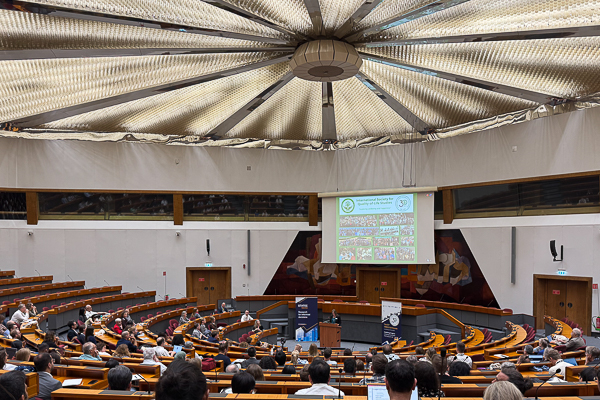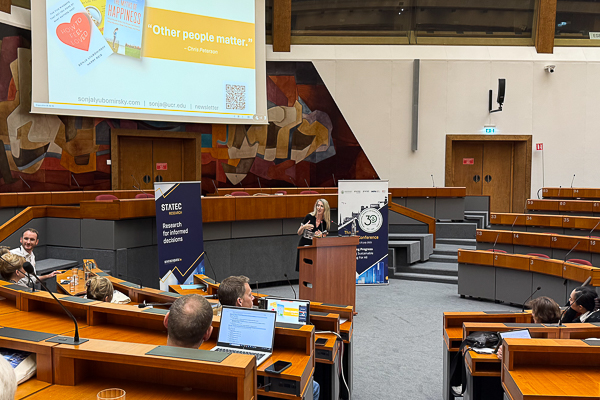 Credit: Ievgenii Karanov, Charonicle.lu
Credit: Ievgenii Karanov, Charonicle.lu
On Tuesday 22 July 2025, the 23rd Annual Conference of the International Society for Quality-of-Life Studies (ISQOLS) kicked off in the Hemicycle in Luxembourg-Kirchberg, bringing together 400 experts from 55 countries.
The event, organised by STATEC Research in cooperation with the University of Luxembourg, APODI asbl and ISQOLS, marks the 30th anniversary of the Society and will run until Friday 25 July 2025.
According to the organisers, this year’s theme - “Redefining Progress: Achieving Sustainable Well-Being for All” - reflects the community’s ongoing efforts to better understand quality of life and to incorporate it into more inclusive and sustainable concepts of societal progress.
In the opening speech, ISQOLS President Stephanie Rossouw marked the 30th anniversary of the society by emphasising its growth and relevance. “Thirty years ago, ISQOLS was founded on the bold belief that quality of life measured, understood, and improved is not a luxury - it is a necessity to build better societies,” she said.
She also underlined the importance of applying research to real-world challenges through scientific rigour and cross-disciplinary collaboration.
Following the keynote by Stephanie Rossouw, Director Emeritus of STATEC, Serge Allegrezza, addressed the audience with a focus on Luxembourg’s national efforts to move “beyond GDP”. He introduced the “PIBien-etre” dashboard, a tool developed by civil society and coordinated by STATEC, aimed at capturing a broader picture of prosperity through indicators such as household income, poverty risk and subjective well-being. Allegrezza noted: “Policymakers in Luxembourg promise to use alternative measures of well-being and prosperity in order to promote policies aiming at a qualitative, inclusive and sustainable growth.”
In the first keynote speech, Sonja Lyubomirsky from the University of California, a leading researcher in the psychological science of well-being, explored how individuals can become happier through deliberate practices. Drawing on over two decades of research, she highlighted that happiness is not only beneficial for personal well-being but also correlates with life success, including improved health, productivity and relationships.
She explained that certain positive activities, when practiced consistently, can increase happiness. These include expressing gratitude, performing acts of kindness, engaging in meaningful social interactions, and even acting more extroverted. She stressed the importance of ‘fit’, finding the right practice for each individual and context, and noted that happiness interventions must be culturally sensitive and appropriately “dosed” to avoid backfiring.
Sonja Lyubomirsky concluded on a personal note, encouraging the audience: “If I were to choose one thing that all of you could do to become happier today or tomorrow, literally my number one happiness tip is to have a conversation with someone - fifteen minutes minimum.”
Keynote speeches over the following three days will feature internationally renowned experts in the field of well-being and sustainability. Robert Costanza from University College London will highlight the need to move beyond GDP growth and towards broader measures of well-being to help achieve the UN Sustainable Development Goals. Richard Layard from the London School of Economics will explore how well-being cost-benefit analysis can support more human-centred public policies. Jeffrey Sachs from Columbia University will focus on the links between well-being, sustainability and the urgent challenges societies must overcome to progress on both fronts.
(Caption: Sonja Lyubomirsky, Distinguished Professor of Psychology at the University of California, delivering her keynote speech; Credit: Ievgenii Karanov, Chronicle.lu)









